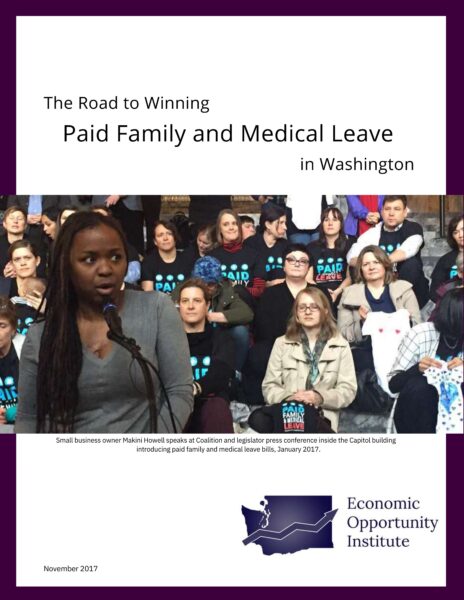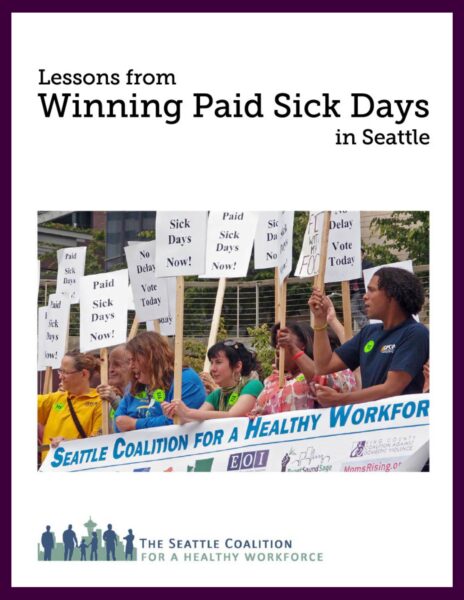Major Reports
EOI produces deep, rigorous research needed to deliver transformative policy solutions. Our work extends beyond the halls of the Washington State Legislature and impacts people in every corner of our state. These reports are examples of the historical and current policy priorities of EOI.
Our work isn’t finished when policy becomes law. To ensure the policies we champion are equitable, we follow our priorities from implementation and beyond.
We work on some of the biggest problems facing Washingtonians. From our upside-down tax code to the rising cost of health care, our policy & research team is at the forefront of progressive policy solutions that build an economy that truly works for everyone.

Controlling Health Care Costs in Washington
Health care costs in the United States are out of control. As a nation, we spend double what similar countries spend – and our costs continue to rise. Higher costs don’t lead to higher quality, better health outcomes, or improved equity, but they do put families, employers, and governments under enormous strain, and make health care harder to access.
A lack of governmental regulation, as well as increasing market consolidation and a lack of transparency, drive our health care costs to exorbitant proportions. Hospitals and providers are increasingly merging under unified ownership. Consequently, they are more able than ever to exert significant leverage and set prices for services and products to maximize revenue, rather than based on operating costs to provide quality and accessible care. As fewer and fewer companies own and control a larger share of the industry, we see higher costs for patients, fewer available provider and drug options, and downward pressure on health care worker wages. Federal agencies such as the Federal Trade Commission lack the capacity, resources, and regulatory authority to effectively evaluate and curtail potential harmful effects of health system mergers and acquisitions, which are very difficult to reverse once in place. Read more.
Preliminary Lessons from Implementing Paid Family & Medical Leave in Washington
Washington is the fifth U.S. state to implement a comprehensive Paid Family & Medical Leave program, and the first to build the full program from the ground up. After a multi-year campaign and stakeholder negotiations, Washington’s legislature passed the program in 2017. Payroll contributions by employees and employers began in January 2019, and paid leave benefits began in January 2020.
Washington’s experience provides key lessons for stakeholders implementing or developing similar state or federal programs, including:
- There is high demand for paid family and medical leave.
- Washington received three times the expected number of applications in the first month and has continued to receive more than expected for the program’s first year of operation.
- Extensive research and building strong community buy-in prior to adoption contributed to Washington’s ability to adopt what was at the time the strongest PFML program in the country, with a focus on equitable access and inclusion.


